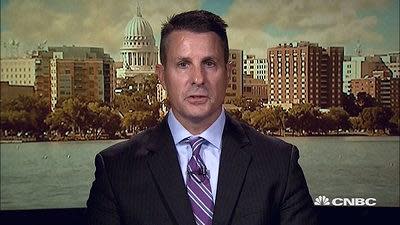If Congress doesn't fund Obamacare subsidies next month it could get pretty complicated

State health insurance regulators have been hoping for the best when it comes to 2018 exchange enrollment, but are now bracing for the worst-case scenario — that the fate of key health insurance subsidies will remain in limbo past key deadlines next month.
"We have a way to protect consumers, but it is complicated and will cause unnecessary confusion and anxiety," said Diana Dooley, chair of Covered California, the state's Obamacare exchange, in a statement Friday.
California officials say they will wait until the end of September to decide whether to let insurers impose a 12.8 percent surcharge on 2018 exchange premiums to account for the potential loss of cost-reduction subsidies that reduce out-of-pocket costs for low-income enrollees.
"We are extending our deadline to give Congress time to act when they return in September," Dooley explained. "We are heartened by the bipartisan discussion that put consumers first, but we can't wait past Sept. 30."
Some Republican lawmakers have proposed passing a short-term funding bill next month to authorize 2018 reimbursements for cost-reduction subsidies insurers are required to make under the Affordable Care Act.
However, if there's no deal on the subsidies within the next five weeks, states will have no choice but to approve rate increases that include surcharges and go with those rates for the start of open enrollment on Nov. 1. On average that would mean consumers would see an extra 20 percent price hike next year.
"In many ways the die has already been cast… if nothing changes before the end of September, we're pretty much looking at those rates being locked in for 2018," said Wisconsin insurance commissioner Ted Nickel, who is also president of the National Association of Insurance Commissioners.
Pressure to act fast
State insurance commissioners, insurers and most of the major health industry groups have been urging Congressional leaders to fund the so-called cost-reduction subsidies for months, but politically it puts Republicans in a difficult spot after their failure to repeal the Affordable Care Act.
A federal judge ruled in favor of House Republicans last year, after they sued the Obama administration arguing that funding for the subsidies was never authorized by Congress. That lawsuit has been put on hold three times since last fall, and is due back in court this week.
President Donald Trump has repeatedly threatened to pull the plug on the insurer reimbursements citing the ruling, though the administration has continued to make the payments on a month-to-month basis, and will make them for August.
"What's likely to happen is that Congress will pass some kind of interim funding, which negates the lawsuit," said Julius Hobson, senior policy advisor at the Polsinelli law firm, adding that barring congressional authorization "it's difficult to get a remedy that forces the government to spend the money."
One thing that could help tip the balance for reaching a deal is the Congressional Budget Office's report, which estimated that cutting the subsidies would increase the deficit by $194 billion over 10 years , in part because higher premium rates would result in more people qualifying for tax credits.
But Congress also has a number of key deals it has to reach next month, including raising the deficit and reaching an agreement to fund the government in order to avoid a shutdown.
What if the payments get funded after the rate hikes?
If funding for cost-reduction subsidies were approved after rates are locked in for open enrollment, consumers would not likely get relief from the price hikes right away.
"The Medical Loss Ratio that was instituted by the ACA will still be in place, meaning that consumers will be reimbursed [if] insures are not spending an 80% minimum on [health] care costs," said Christina Cousart, senior policy associate at National Academy for State Health Policy, but she added those rebates would happen retroactively.
Some consumers might not be made whole for the premium surcharges. The higher rates would likely result in even fewer healthy unsubsidized consumers signing up for coverage. While the rate increases should be high enough to shield insurers from losses on sicker enrollees, they would not necessarily result in big rebates for consumers.
"There's no way we can back out these higher rates that the companies put in… We're going to have more expensive health insurance plans, we're going to have fewer people enrolled," said insurance industry consultant Robert Laszewski, president of Health Policy and Strategy associates.
What's also unclear is whether consumers who receive larger tax credits would have to pay them back at tax time, if insurers do provide premium surcharge rebates.
"This is really hard to say at this point, without knowing how it will all play out — which is why we believe that the best solution is for Congress and the administration to resolve this issue now," said Covered California spokesman James Scullary. "A resolution now eliminates the need for all of these workarounds to protect consumers."
If Congress manages to come up with a funding deal to keep the subsidies in place, Wisconsin's insurance commissioner says they should not stop there. He says the current problems underscore the need to give states more flexibility to stabilize their exchange markets than they have under current Obamacare rules.
"We have so little control now, so much of it is coming from the federal government through more of a central planning function rather than letting states engage in ways that best needs of their consumers," said Nickel. "We do find ourselves in very difficult straights."
WATCH: Key Obamacare subsidies will continue being paid to insurers despite Trump threats to end them
More From CNBC

 Yahoo Finance
Yahoo Finance 
